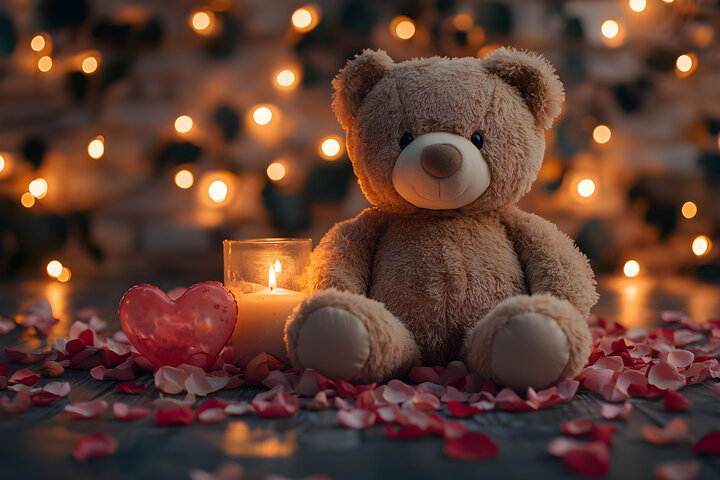Conversations in Grief Blog: Teddy Bears
Teddy Bears
by Hilary Furnish

On September 22, 2022, the bears began to arrive. One by one, in their red hats and blue coats, bears were left at the gates of Buckingham Palace. They peered through a forest of flowers and greeted the teary faces of visitors who came to honor the death of Queen Elizabeth II. Paddington Bears were left to honor the memory of the Queen who had impacted many around the globe over the 70 years and 214 days that she wore the crown. Her death brought surprising grief to those who had never met her. Millions watched as people stood for hours to honor her as she lay in state. They were transfixed as her funeral procession took place and she passed her last two remaining corgis. Something about this loss drew people together and together they watched and mourned the Queen they never knew.
Something is confusing about this type of grief. Logically we can state (or others may remind us) that this political figure was not a friend or a family member so it should not move us emotionally. Why are we fighting back tears when we watch strangers leave bears by palace gates? This grief is known as collective grief. It is the shared grief we feel when a community experiences tragedies, when a celebrity dies, or when we see significant changes happening to our world. There may be aspects of this grief that are personal. The person who died may have inspired us or reflect a nostalgic part of our lives. In other instances, we are drawn in by the images on the news, conversations with friends, or the understanding that this loss means the way we understand the world has shifted significantly.
Participating in collective mourning can be difficult, as there are few allowances made culturally for this type of loss. We may feel the desire to engage in a mourning ritual but there may be no space for one. Our family and friends may feel differently about what has happened and we may lack the support we need. This may lead us to feel disenfranchised in our grief. The lack of connection may lead to hours of scrolling for information or other unhelpful activities that detract us from what may be needed for us to honor the grief we feel.
Collective grief often stirs a desire for action. To help make changes or honor what was lost. When we cannot travel to leave gifts or attend funerals creating our own rituals may be needed. This may be as simple as a social media post to honor someone who died or partnering with a charity that is taking action in response to a tragedy. Wherever we are and however we may feel, our grief is valid, and honoring it is important. There were 1,000 Paddington Bears left in the Queen’s memory. The bears were not abandoned but collected, cleaned, and donated to an organization that helps children. This type of action helps not only to nurture hope for the future in the wake of loss but also provides honor to those whose memory the bears represent. We too can find ways to acknowledge the collective grief we feel and in doing so can honor the memory of what was lost.